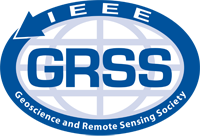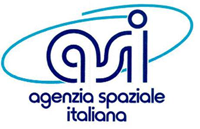FD-03: Recent advances in machine learning and signal processing for remote sensing data analysis
Gustau Camps-Valls and Devis Tuia
Sunday, July 26
08:30 - 17:30
Abstract:
In this tutorial, we will present the remote sensing image processing chain, and take the attendants on a tour of different strategies for feature extraction, classification, unmixing, retrieval, and pattern analysis for data understanding. On the one hand, we will present powerful methodologies for remote sensing data classification: extracting knowledge from data, including interactive approaches via active learning, classifiers that encode prior knowledge and invariances, semisupervised learning that exploit the information of unlabeled data, and domain adaptation to compensate for shifts in the ever-changing data distributions. On the other hand, we will pay attention to recent advances in bio-geophysical parameter estimation that incorporate heteroscedasticity, online adaptation, and problem understanding. From there we will take a leap towards the more challenging step of understanding the geoscience problems from data by reviewing the latest advances in (directed) graphical models, structure learning and empirical causal inference. Beyond theory, we will also present results of recent studies illustrating all the covered issues. Finally, we will provide code to the attendees to try the different methodologies and provide a solid ground for their future experimentations.
Biography:
Gustau Camps-Valls received a Ph.D. degree in Physics (2002, summa cum laude) from the Universitat de València, Spain, where he is currently an Associate Professor (hab. Full professor) in the Electrical Engineering Dep. He teaches time series analysis, advanced signal and image processing, machine learning, and knowledge extraction for remote sensing. His research is conducted as Group Leader of the Image and Signal Processing (ISP) group, http://isp.uv.es, of the same university. He has been Visiting Researcher at the Remote Sensing Laboratory (Univ. Trento, Italy) in 2002, the Max Planck Institute for Biological Cybernetics (Tübingen, Germany) in 2009, and as Invited Professor at the Laboratory of Geographic Information Systems of the Ecole Polytechnique Fédérale de Lausanne (Lausanne, Switzerland) in 2013. His research interests are tied to the development of machine learning algorithms for signal and image processing with special focus on remote sensing data analysis.
Devis Tuia was born in Mendrisio, Switzerland, in 1980. He received a diploma in Geography at the University of Lausanne (UNIL) in 2004, a Master of Advanced Studies in Environmental Engineering at the Federal Institute of Technology of Lausanne (EPFL) in 2005 and a Ph.D in environmental sciences at UNIL in 2009. He was a postdoc researcher at both the University of València, Spain and the Univeristy of Colorado at Boulder under a Swiss National Foundation program. In 2011-2014, he was senior research associate at the LaSIG laboratory, EPFL. He is now Assistant Professor at the Department of Geography of the University of Zurich, Switzerland. His research interests include the development of algorithms for information extraction and classification of very high resolution remote sensing images using machine learning algorithms.




